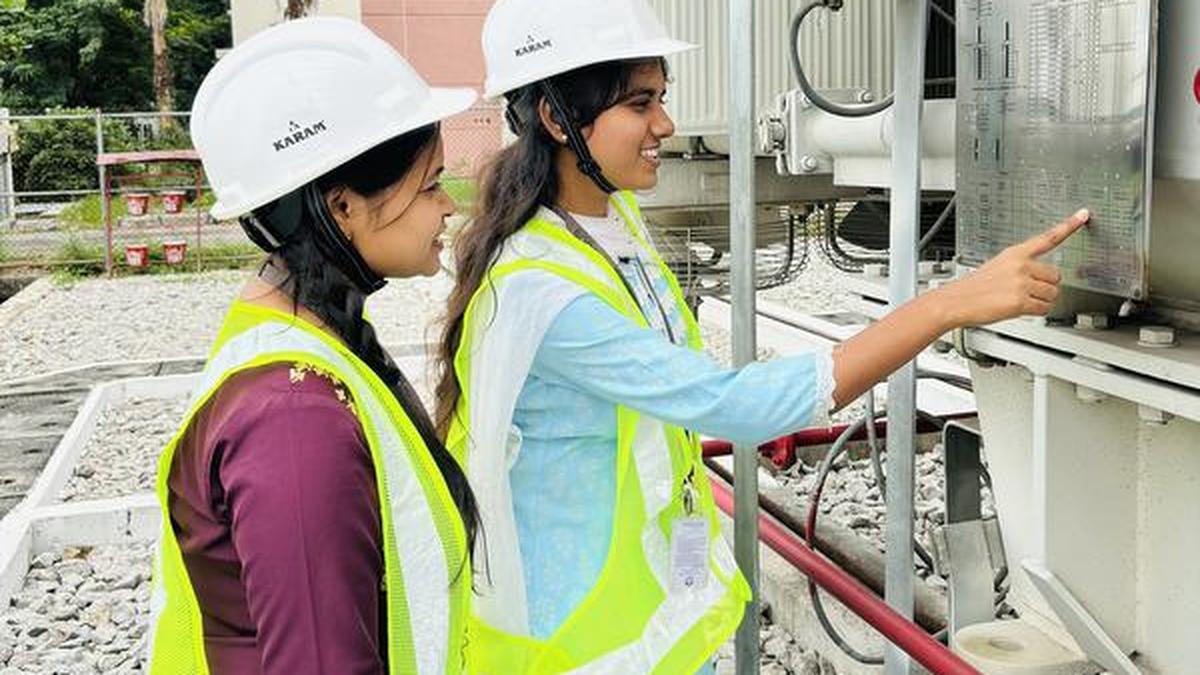
Backbone of Hyderabad Metro Rail Premium
The Hindu
Hyderabad Metro Rail's PSS and OHE teams ensure smooth operations and safety for millions of daily commuters.
Hyderabad Metro Rail (HMR) is not just about the trains but also the key infrastructure that helps the rolling stock run smoothly for about 18 hours daily, uninterrupted.
Nearly five lakh passengers in the twin cities commute daily by metro across the three corridors for 69.2 km in the capital region.
Behind the sleek, modern face of the metro rail built and run by L&T Metro Rail Hyderabad (L&TMRH) lies a complex network of systems, such as the Power Supply Systems (PSS) and Overhead Electrification (OHE) infrastructure, which require constant care and attention.
Specialised PSS and OHE teams are responsible for maintaining the dense network of substations, overhead lines, and traction power systems that keep the metro trains running around the clock. These teams work in shifts to monitor the four 132kV substations supplying power to the metro rail system by conducting regular inspections and troubleshooting.
Any disruption in the power supply can lead to significant delays and inconvenience for thousands of commuters, say metro rail officials.
“Our engineers ensure that the electrical systems converting power from the substations into a suitable form for the trains are proper by minutely inspecting and repairing components such as transformers, rectifiers, and inverters,” explains L&TMRH chief operating officer (COO) Sudhir Chiplunkar.
“The primary source of power for the metro rail system is the overhead power line, and its maintenance is quite a challenge as we have to work on-site. It includes inspection, repair and replacing of worn out lines and overhead lines,” adds senior engineer B. Uday Kiran.

Bangladesh is witnessing renewed political tension after the killing of Sharif Osman Hadi, a young leader who emerged during the July–August 2024 uprising that led to the removal of Sheikh Hasina. Hadi later headed the radical group Inquilab Mancha and was campaigning ahead of the 2026 parliamentary election when he was shot in Dhaka. His death has triggered protests, diplomatic friction with India, and concerns over rising political violence as Bangladesh heads towards elections under an interim government.












